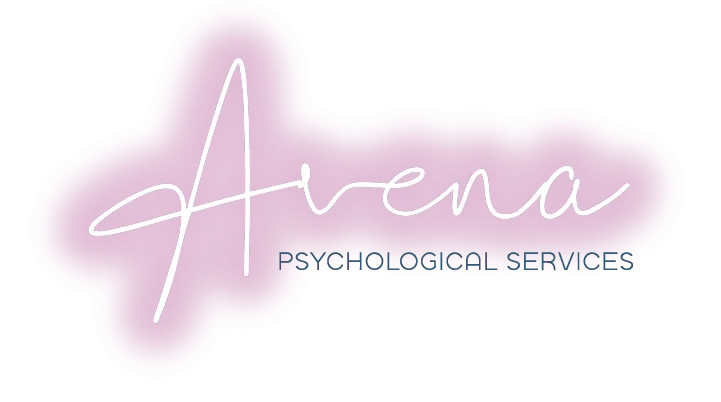Childhood trauma can cast a long shadow, impacting everything from our emotional well-being to our physical health and relationships. It’s a harsh reality that millions of people carry the weight of these experiences throughout their lives.
But the question remains: does overcoming childhood trauma ever become a reality?
The answer is complex, but ultimately hopeful. While the events themselves cannot be undone, the impact they have on us can be lessened. Through self-awareness, therapy, and a supportive network, we can learn to manage the emotional and psychological burdens of childhood trauma.
How Do You Cope With Childhood Trauma?
There’s no single answer to how you cope with childhood trauma. The healing process is unique to each individual and depends on the severity and nature of the trauma experienced.
However, some general strategies can be incredibly helpful:
- Acknowledge and Validate Your Emotions: The first step is acknowledging that your experiences were traumatic and that the emotions you feel as anger, sadness, shame as are valid. Pushing down these feelings can hinder healing.
- Seek Professional Help: A therapist can provide a safe space to explore your trauma and develop healthy coping mechanisms. Consider therapists specializing in childhood trauma for the most effective guidance.
Beyond Talk Therapy: There are many therapeutic approaches that can be beneficial for overcoming childhood trauma.
Here are a few examples:
- Cognitive Behavioral Therapy (CBT): CBT helps identify negative thought patterns and develop healthier ways of thinking about the trauma.
- Eye Movement Desensitization and Reprocessing (EMDR): EMDR uses eye movements to help reprocess traumatic memories and reduce their emotional impact.
- Somatic Experiencing Therapy: This therapy focuses on the body’s response to trauma and helps individuals reconnect with their physical sensations in a safe and controlled way.
How Does Unresolved Childhood Trauma Manifest in Adults?
The effects of unresolved childhood trauma can linger far into adulthood, silently shaping our thoughts, behaviors, and relationships.These consequences can be both emotional and physical, impacting every aspect of our lives.
Here’s a closer look at how unresolved childhood trauma can manifest in adults:
Mental Health Struggles:
- Depression and Anxiety: Unprocessed trauma can leave individuals feeling overwhelmed by negative emotions like sadness, hopelessness, and fear. This can lead to the development of depression and anxiety disorders.
- Post-Traumatic Stress Disorder (PTSD): In some cases, childhood trauma can trigger PTSD, characterized by flashbacks, nightmares, and intense avoidance of anything reminiscent of the traumatic event.
- Eating Disorders: People with unresolved trauma may use food restriction or overeating as a coping mechanism to numb emotional pain.
- Obsessive-Compulsive Disorder (OCD) and Phobias: Repetitive thoughts and behaviors associated with OCD, or phobias triggered by specific situations, can sometimes be rooted in unresolved childhood trauma.
Challenges in Relationships:
- Attachment Issues: Childhood trauma can disrupt healthy attachment patterns, making it difficult to trust and form secure, intimate relationships.
- Fear of Abandonment: The fear of being hurt or rejected again, stemming from a traumatic experience, can lead to clinginess or difficulty letting people close.
- Codependency: Some adults who experienced childhood trauma may develop codependent tendencies, sacrificing their own needs to please others.
- Domestic Violence: Individuals who grew up in a violent environment may be more susceptible to entering into abusive relationships as adults, or repeat the cycle by becoming abusive themselves.
Self-Esteem and Identity Issues:
- Low Self-Esteem and Shame: Negative self-beliefs and feelings of worthlessness are common consequences of childhood trauma. The traumatic experience can leave a person feeling broken, damaged, or like they don’t deserve happiness.
- Difficulty with Boundaries: Unresolved trauma can make it challenging to set healthy boundaries in relationships, leading to feelings of being taken advantage of or used.
- Identity Issues: Traumatic experiences can disrupt a person’s sense of self, making it difficult to understand their values, desires, and purpose in life.
Physical Health Problems:
- Chronic Pain and Headaches: The constant stress associated with unresolved trauma can manifest in physical ailments like chronic pain, headaches, and stomachaches.
- Weakened Immune System: Chronic stress can suppress the immune system, making individuals more susceptible to infections and illnesses.
- Sleep Disturbances: Nightmares, flashbacks, and difficulty relaxing can lead to insomnia and other sleep problems.
- Substance Abuse: People may turn to alcohol, drugs, or other substances to numb emotional pain or cope with difficult memories.
It’s important to remember that not everyone who experiences childhood trauma will develop all of these symptoms.
The way trauma manifests can vary depending on the individual, the nature of the trauma, and the coping mechanisms they developed in childhood.
However, if you find yourself struggling with many of these signs, it’s crucial to seek professional help to address the underlying trauma and start your healing journey.
What Are The Four Types of Childhood Trauma?
Understanding the different types of childhood trauma can be helpful in identifying its impact on your life.
Here’s a brief overview of four main categories:
- Physical Abuse: This includes any physical harm inflicted on a child.
- Sexual Abuse: This involves any sexual contact or behavior a child cannot consent to.
- Emotional Abuse: This encompasses verbal or emotional attacks that damage a child’s self-esteem and sense of security.
- Neglect: This occurs when a caregiver fails to provide a child with their basic needs for physical or emotional well-being.
It’s important to remember that these categories can overlap, and a child can experience more than one type of trauma. Additionally, witnessing violence or other traumatic events within the family unit can also be deeply damaging.
The Road to Healing: It’s Never Too Late
Overcoming childhood trauma is a journey, not a destination. There will be setbacks and challenges along the way. However, with perseverance and the right support system, healing is possible.
Here are some additional tips for your road to recovery:
- Build a Strong Support Network: Surround yourself with supportive and understanding people who believe in you and your journey.
- Practice Self-Care: Prioritize your physical and mental well-being through healthy eating, regular exercise, and relaxation techniques like yoga or meditation.
- Engage in Activities You Enjoy: Make time for hobbies and activities that bring you joy and a sense of accomplishment.
- Educate Yourself: Learning about childhood trauma and its effects can empower you to take control of your healing process.
- Be Patient with Yourself: Healing takes time. Be kind to yourself and celebrate your progress, no matter how small.
Remember, you are not alone. Millions of people have overcome childhood trauma and live fulfilling lives.
If you are struggling with the effects of your past, there is help available. Reach out to a therapist, join a support group, or connect with online communities. The important thing is to take that first step towards healing.
Contact us to schedule an appointment with a professional in New York or New Jersey.

